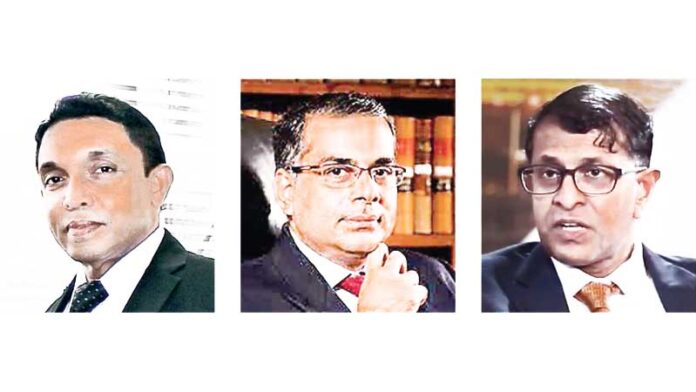November 23, Colombo (LNW): Sri Lanka’s steady recovery from the turmoil of 2022 has drawn praise from international analysts, yet concerns remain about whether the country can secure long-term economic stability.
Development specialist Dr Ganeshan Wignaraja said the latest national budget reflects a firming of the stabilisation effort, with renewed attention on trade, digital innovation and the ongoing Port City project. But he cautioned that the next phase demands more decisive structural change if the nation is to avoid slipping back into cycles of austerity.
Sri Lanka’s collapse into sovereign default in 2022 triggered its most severe economic downturn in decades, marked by soaring inflation, shortages and widespread public anger. Unlike many countries that have suffered similar shocks, however, the downturn was relatively brief. By mid-2025 the economy had grown by nearly 5 per cent in the first six months, inflation had steadied at around 2 per cent, though poverty remained deeply entrenched.
The rebound has been attributed to a mix of Indian support, a stringent IMF programme worth US$2.9 billion, and firm action by both the Government and the Central Bank. President Anura Kumara Dissanayake, in office since late 2024, has persisted with IMF-aligned reforms despite earlier pledges from his coalition to renegotiate conditions in favour of greater welfare provision.
With the IMF programme at its midpoint, attention is turning to whether the current momentum can be sustained. The 2026 Budget, presented by the President in his capacity as Finance Minister, is framed around “Steady and Strong: Committing to Fiscal Discipline for a Resilient Economy.” It envisions a primary surplus of 2.5 per cent of GDP, revenue of 15.4 per cent of GDP and a deficit of 5.1 per cent next year. But its 7 per cent growth forecast has been met with scepticism due to the IMF’s more modest projection of just over 3 per cent and global economic uncertainty.
Still, the administration has some political breathing room after raising the tax-to-GDP ratio to an estimated 13.5 per cent—a substantial climb from the 2022 low. The budget outlines funds for housing for vulnerable families, irrigation improvements, public sector wage adjustments, and plans for 75,000 new civil service positions. It also includes allocations for MPs’ vehicles, a decision that has drawn mixed public reactions.
Economist Prof Sirimal Abeyratne noted that the budget proposes adjustments to taxation, governance reforms and a push towards digital public services. He pointed out that lowering the VAT threshold to Rs 36 million could broaden the tax net, though he emphasised that real progress hinges on long-term structural reforms. He also warned that poverty—both visible and hidden—remains widespread, with millions struggling silently despite recent stabilisation.
Prof. Abeyratne emphasised the need for stronger support for SMEs, export expansion and higher foreign investment. Meanwhile, financial analyst and Advocata Institute Chairman Murtaza Jafferjee described the VAT changes as a sensible shift towards a more coherent tax system but said even more exemptions could have been removed to reduce distortions. He also argued that para-tariffs, which typically serve narrow interests, should finally be abolished after years of unfulfilled promises.
Jafferjee cautioned that generous tax concessions under various investment laws should be approached carefully, noting that investors prioritise policy consistency and market conditions over one-off incentives. He suggested widening welfare transfers such as Aswasuma to protect vulnerable families while creating room to streamline VAT without harming equity.
Both economists agreed that without immediate structural reforms, the window for decisive action may soon close. Sri Lanka’s recovery has so far benefited from benign external conditions, they noted, but if global or domestic shocks emerge in 2026, the country will have limited fiscal space to respond.
